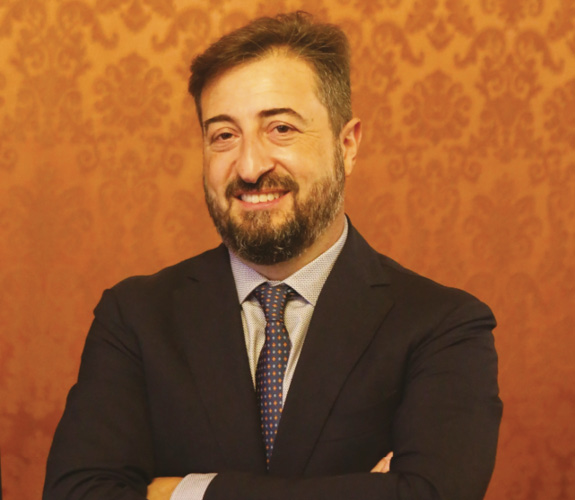A teacher at Columbia University in New York, full professor of history of political thought at the University of Bologna, Assessor for City Planning, Raffaele Laudani embodies the many souls of Bologna. Without boundaries, academic, attentive to social concerns, the city is dealing with a period of development and transformation involving numerous aspects.
Will all of Bologna’s city planning projects improve accessibility as well?
Absolutely, because we consider accessibility in a wide context, meant to promote access to the rights and needs of all citizens. After many years, Bologna has launched very large projects to transform its infrastructures. It’s undeniable that there’s still a lot to be done, and we’re not sure that we’ll manage to finish everything in time. We have to make up for a lot of lost time to achieve our accessibility goals.
Is a greener, more inclusive, more accessible Bologna just a dream?
It’s the heart of the city’s project launched at the start of the term, the defining policy of Mayor Lepore’s administration. Achieving our goal will take time, and the projects may need to be revised from time to time, because cities are living organisms with changing needs. But our goals won’t change.

The Cavazza Institute in Bologna is a reference point for visually impaired people throughout Italy, and many activities are conducted together with our institutions. How can this positive circle of collaborations be expanded?
Choices are made not only for people, but with people. The aim is to activate the city’s collective brain, trying to exploit the knowledge and skills of its citizens in as productive a relationship as possible with institutions and, especially, with people. You also have to activate third sector institutions, and for this there are specific mandates and a strategic plan coordinated by Erika Capasso, the person in charge of participation by the third sector. I think we need to reverse the way interaction between the Administration and third sector institutions has been conducted, questioning every aspect. For third sector institutions, this means being more proactive, trying to participate in governing the city, being a force of government. And the Administration has to permanently abandon the 20th-century model and imagine a more multifaceted model for governing the city, delegating powers to the city. It remains to be seen how theory can be transformed into practice; everyone, including the third sector, has to play their part, and this includes an important and prestigious institution like Cavazza.
One of Bologna’s goals is to become the City of Knowledge. What does this mean?
It means making the city ready to deal with the challenges of the future, not only those of the present. It has to do with the enormous transformations taking place: climate change, housing, right to healthcare, digitization, to name just a few. Massive changes in which cities become the places where these challenges become real in people’s daily lives. At the same time, cities are spaces that have the economic resources, skills, infrastructures, experts, and energy needed to meet these challenges. Our idea is that knowledge has to become the key for redesigning all of Bologna’s policies, and a few processes are already moving in that direction, such as the development of the Technopole in the north of the city, policies to attract talent and investments, promote the city, respond to social and environmental challenges. This is an overall revision that also involves the city planning aspect. Knowledge has to shape the city, including physically. Specifically, this project is based on two aspects, sort of like hardware and software. The hardware is the planning aspect, what we call the Street of Knowledge, the identification of an area of the city with the main scientific poles, but also the main abandoned areas, ready for urban regeneration driven by knowledge. The software is what we call Knowledge Policies, carrying out strategic actions to make knowledge the flywheel for social promotion and to develop and strengthen real democracy. Today, the challenge for science and knowledge is to discriminate between authentically democratic projects and authoritarian ones. To meet this challenge, we have a program called Knowledge Workshops, whose objective is to create a Citizen Science office, i.e., to do science for and with the citizens.
In addition, the Digital Twin project, technically a digital copy of the city, will create a new civic infrastructure with shared management of data to allow the Administration to more effectively carry out its urban policies, but above all to make available to everyone – individuals as well as companies, associations, institutions – tools to carry out their projects.

.jpg)



.png)